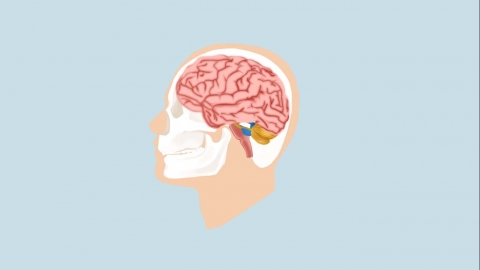What are the common causes of cerebral infarction?
Under normal circumstances, common causes of cerebral infarction may include long-term smoking and excessive alcohol consumption, obesity, hypertension, hyperlipidemia, and atrial fibrillation. If symptoms occur, it is recommended to seek timely treatment at a qualified hospital. Detailed analysis is as follows:
1. Long-term smoking and excessive alcohol consumption
Nicotine from cigarettes and alcohol can damage vascular endothelium, promote the formation of atherosclerosis, cause cerebral vascular stenosis, and increase the risk of cerebral infarction. Immediate cessation of smoking and alcohol consumption is necessary to reduce vascular damage. Additionally, drinking more warm water can help promote body metabolism.
2. Obesity
Excessive fat accumulation in obese individuals can lead to metabolic disorders, increased blood viscosity, and slowed blood flow, which may trigger cerebral infarction. A reasonable diet with reduced intake of high-calorie and high-fat foods, combined with regular moderate exercise such as jogging or swimming, should be adopted to reduce weight.

3. Hypertension
Long-term hypertension places significant pressure on cerebral vessel walls, causing thickening of the vessel walls, narrowing of the lumen, and even occlusion, leading to cerebral infarction. Antihypertensive drugs such as nifedipine sustained-release tablets, irbesartan tablets, and hydrochlorothiazide tablets can be used under medical guidance to control blood pressure, with regular monitoring of blood pressure changes.
4. Hyperlipidemia
Elevated levels of lipids such as cholesterol and triglycerides in the blood can deposit on vessel walls, forming atherosclerotic plaques that block cerebral vessels, resulting in cerebral infarction. Lipid-lowering medications such as atorvastatin calcium tablets, rosuvastatin calcium tablets, and fenofibrate capsules can be used under medical guidance to reduce blood lipid levels and improve vascular health.
5. Atrial fibrillation
Atrial fibrillation causes disordered atrial contractions, easily leading to thrombus formation. These thrombi may dislodge, travel through the bloodstream to cerebral vessels, and block vessels, causing cerebral infarction. Anticoagulant medications such as warfarin sodium tablets, dabigatran etexilate capsules, and rivaroxaban tablets can be used under medical guidance to prevent thrombus formation and reduce the risk of cerebral infarction.
In daily life, it is important to maintain a regular routine and avoid staying up late; eat a light diet, consuming more fresh vegetables, fruits, and whole grains; and maintain a pleasant mood, avoiding emotional agitation.








